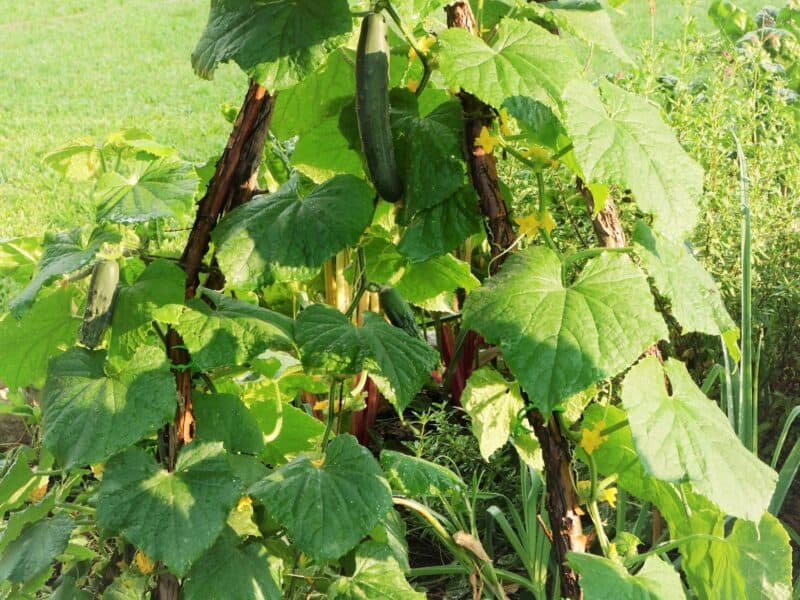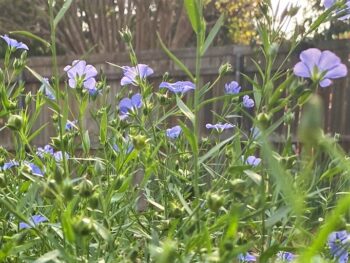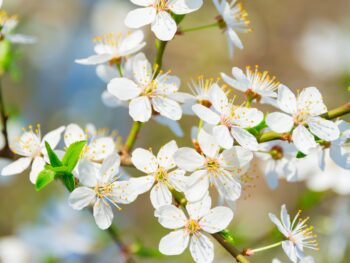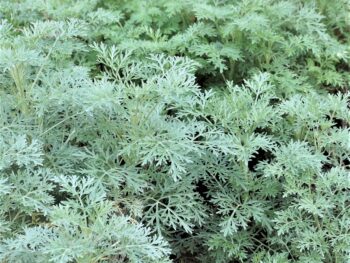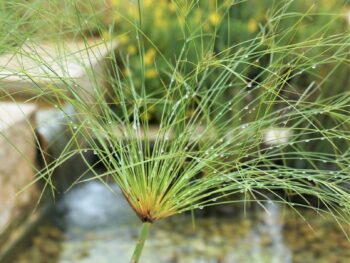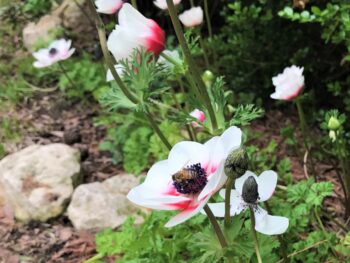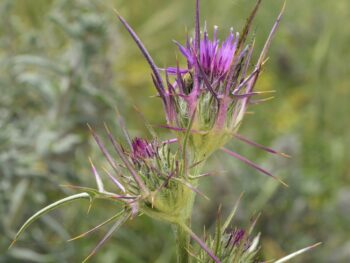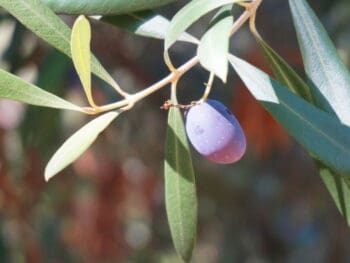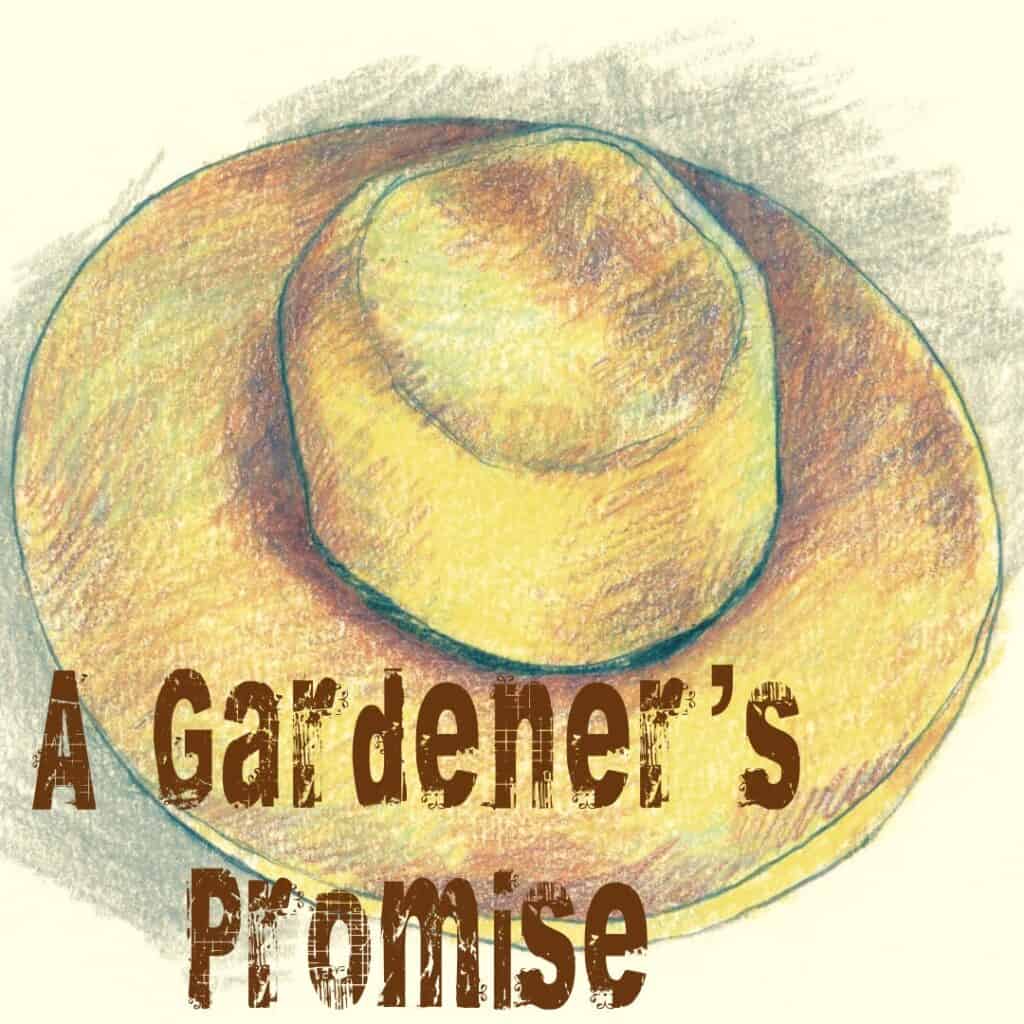
Does the arrival of spring stir your heart for summer vegetables? The garden, perhaps more than any other place, interconnects the seasons in an exceptional way. Gardeners learn to think ahead to plan for different plants’ sowing and harvesting across the year, all the while approaching work with a day-at-a-time pace. Cultivating a garden teaches so much, like the practical wisdom to hold the tension between such extremes. Chapters 9 and 10 of My Father is the Gardener help us struggle through these dichotomies with transformative Scripture and tasty vegetables, all springing from a funny-not-funny passage in Numbers 11. In this moment, the Israelites missed their cucumbers and melons, and alliums trio, leeks onions, and garlic, lamenting the past instead of focusing on the future:
The rabble with them began to crave other food, and again the Israelites started wailing and said, “If only we had meat to eat! We remember the fish we ate in Egypt at no cost—also the cucumbers, melons, leeks, onions and garlic.” Numbers 11:4–5 NIV
“Lettuce” learn from their grumbling despair, dig in for the long haul, and grow resilience for the harvest at hand. Join me in the Journal Questions below for My Father is the Gardener.
Click here to buy My Father is the Gardener
Chapters 9 and 10 – Cultivating & Cucumbers, Leeks, Onions and Garlic
Cucumbers are voracious, climbing, sprawling vines, while all the alliums are planted-in-place, uniformly growing plants, most often in soldier-like rows. God’s contrasts abound! Yet they are all basics in the vegetable garden which thrive in full sun, and have been ever since the Israelites’ cries made these ancient Egyptian crops famous.
Cucumbers, Leeks, Onions and Garlic
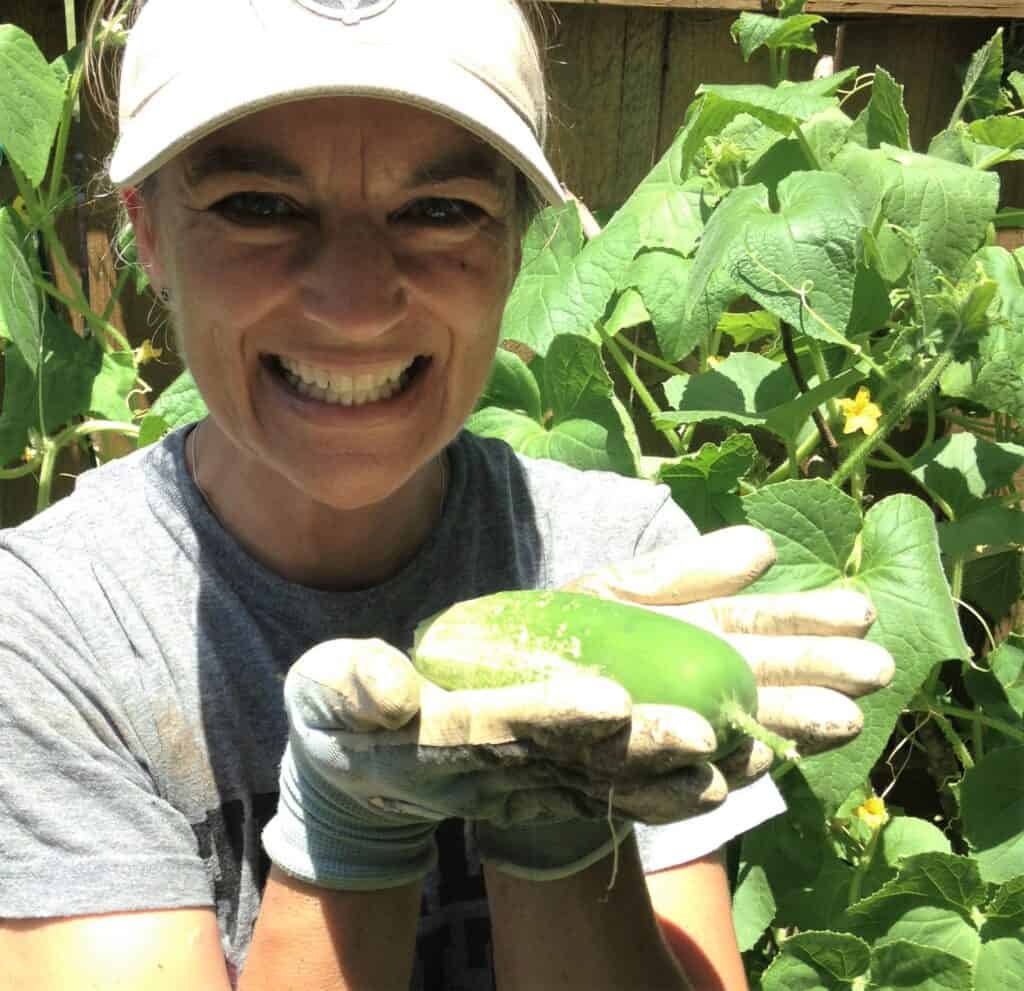
Cucumbers, Cucumis sativus, are an annual vine grown from seeds or transplants. They are especially enjoyable when homegrown, because their skin has a sumptuous texture (store bought cucumbers are coated with edible wax to endure shipping and stay fresh). I was reluctant to grow them at first, but they have won my heart with their twining antics and delicious taste. Their vining habit requires a trellis structure, and it is great fun to watch their curly tendrils grip and guide the growth each day. Learn more about growing cucumbers in the Plant Guide: Cucumber – Garden In Delight
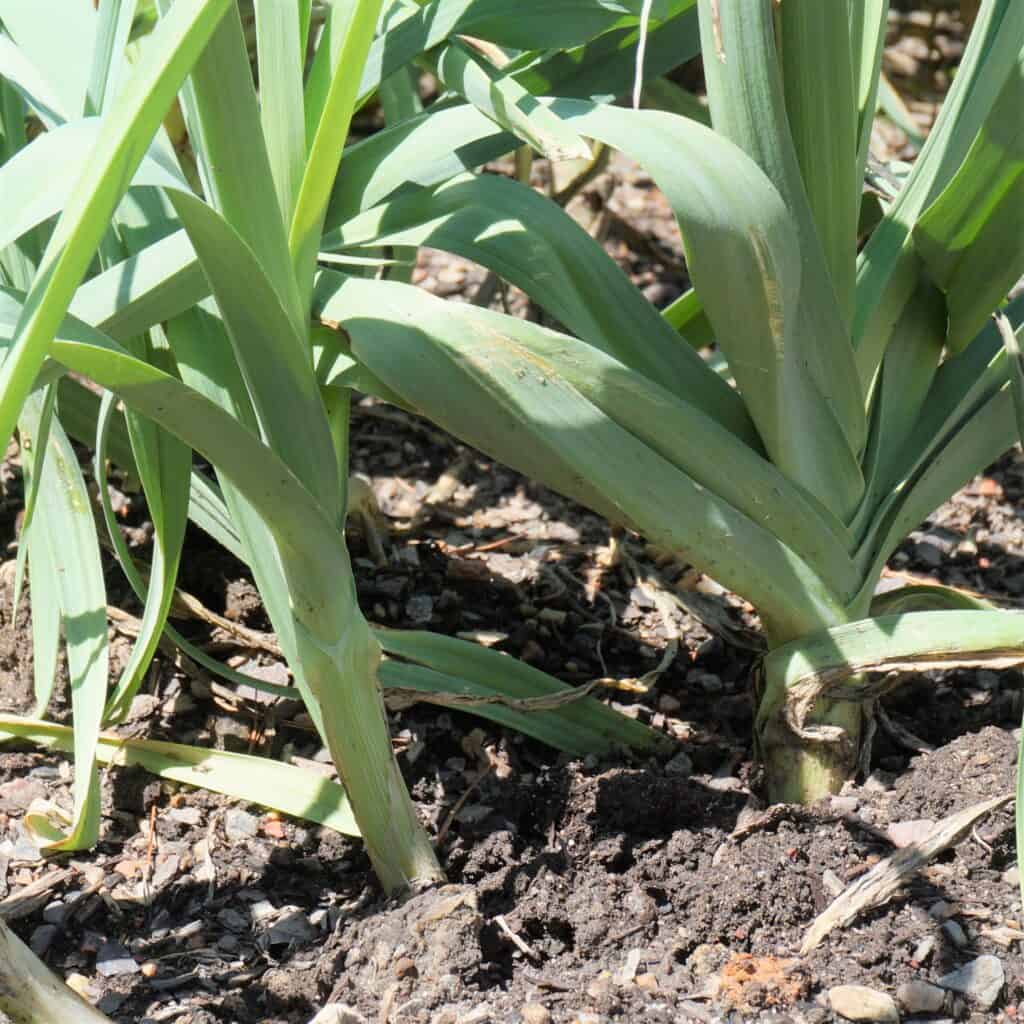
Leeks, Allium ampeloprasum, are a more stout, upright allium, a gentle savor on the spectrum from onion to garlic. They are best grown from seed, sown in the fall and harvested the following summer to late fall. Leek flowers bloom like big, purplish, blossom-dotted tennis balls in late spring. In temperate climates, leeks can be left in the garden year-round to harvest on-demand for soups and sauces. Learn more about leeks in the Plant Guide: Leeks – Garden In Delight
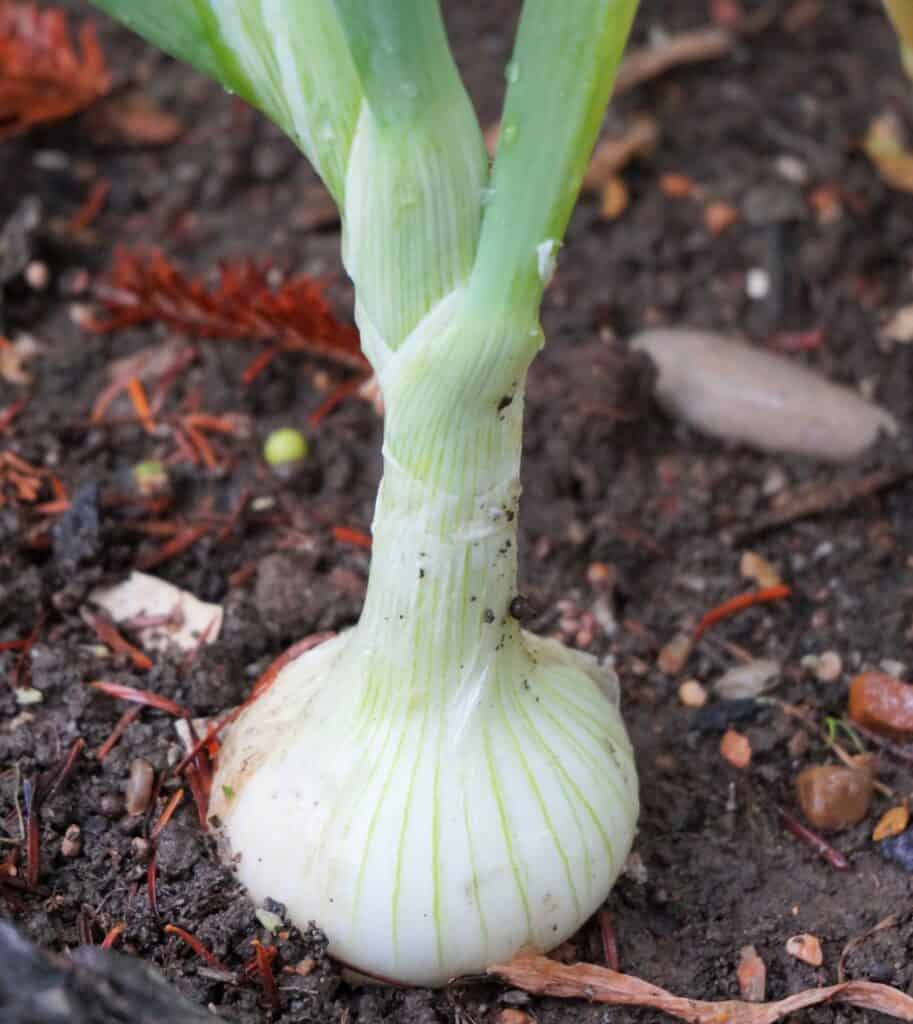
Onions, Allium cepa, are a bulbous allium, one of the most common flavor bites on everything from ballpark hot dogs to long-simmered marinara sauce. They are remarkably easy to grow and will have an even more engaging flavor from your own yard. Sow seeds in early spring, or in fall for mild climate gardens. Or plant onion slips later in the season from your local or online nursery. Varieties and sweet-to-stinging flavors abound, so be ready for adventure and a bit of trial-and-error fun to find your favorites. See onions in the Plant Guide: Onions – Garden In Delight
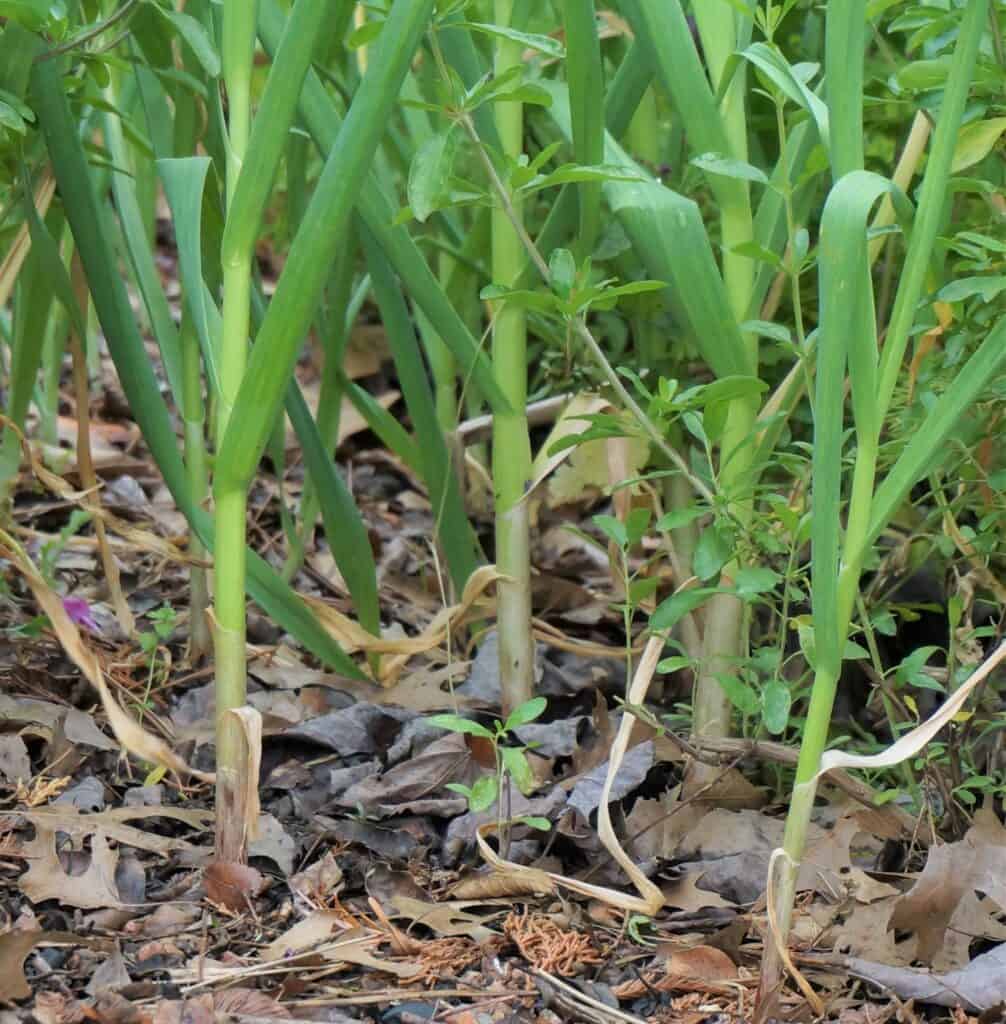
You will love growing your own garlic, Allium sativa – give it a try! Plant single cloves in the fall and unearth full heads by the next summer. Hardneck or softneck, you decide. Hardnecks yield funky flowers called “scapes” midseason, which are also pungent with garlic flavor and tease to harvest tastes on the way. The final weeks before harvesting require no watering for stalks to dry out, and since garlic harvests before onions, these two alliums need to be on separate sprinkler zones or watering schedules. For growing, harvesting, and storing information, see the Plant Guide: Garlic – Garden In Delight
Journal Questions Chapter 9
Follow along in Chapter 9 of My Father is the Gardener
Daughter Zion is abandoned like a shelter in a vineyard, like a shack in a cucumber field, like a besieged city. Isaiah 1:8 HCSB
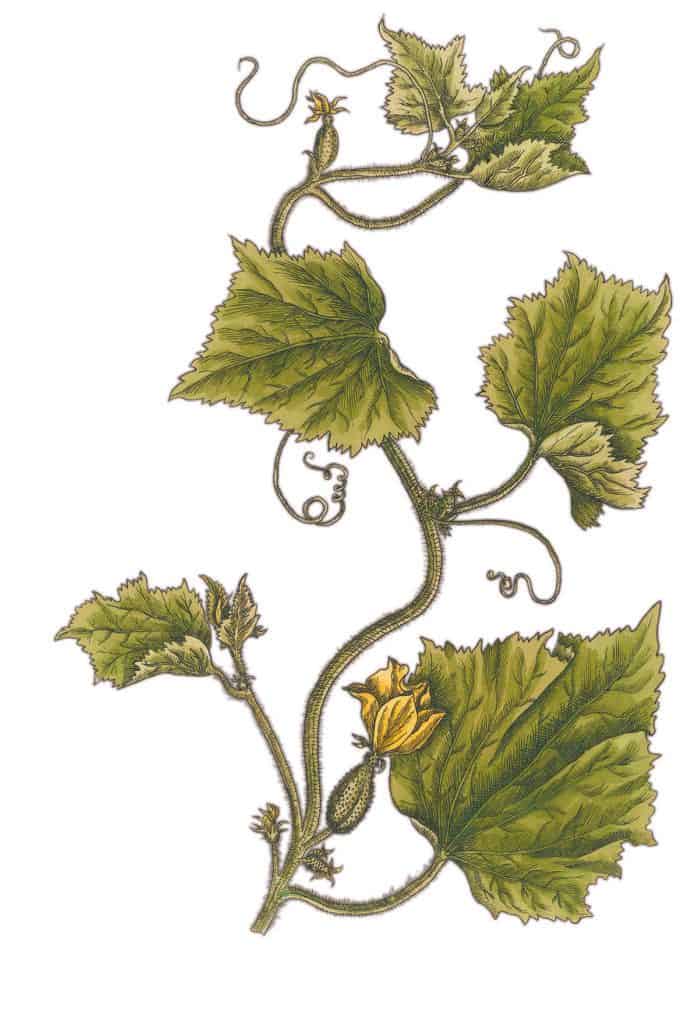
- Do you grow cucumbers? Do you enjoy the summer work of cultivating a vegetable garden?
- Thinking about the characteristics of cucumbers – watery flesh, refreshing, crisp texture, distinguishing flavor – read Isaiah 1:7—20 and notice words from the passage which could also describe or relate to cucumbers:
- Have you ever made a metaphoric fortress out of your work, for example, plunging into work as if it would protect you from invading pain?
- Write Psalm 91:1-2 in your own handwriting:
- Would you be willing to exchange your work-shelter for God’s shelter?
When they grew up, Abel became a shepherd, while Cain cultivated the ground. When it was time for the harvest, Cain presented some of his crops as a gift to the Lord. Abel also brought a gift—the best portions of the firstborn lambs from his flock. The Lord accepted Abel and his gift, but he did not accept Cain and his gift. Genesis 4:2–4 NLT
- Have you ever trusted the Lord with your work? That is, have you ever relied on Him to produce what was needed to accomplish something?
- Compare and contrast that with a work situation in which you relied on your own abilities and resources:
- Write any questions or confusion you have about the two brothers’ offerings to the Lord (Genesis 4:2-7):
- Write a prayer asking God how to understand these obscurities:
- Does Hosea 6:6 TLB offer you insight for your questions?
He waters the mountains from the upper rooms of his palace; the earth is full of the fruit you cause to grow. He provides grass for the cattle, and crops for people to cultivate Psalm 104:13–14 NET
- Describe your usual cultivating session in your garden and how often your get to dig into a session like this:
- Thank God for the pleasures and satisfactions you enjoy in your cultivating work:
- Ask Him to transplant that endearing value to your relationship with Him:
Above all else, watch over your heart; diligently guard it because from a sincere and pure heart come the good and noble things of life. Do away with any talk that twists and distorts the truth; have nothing to do with any verbal trickery. Keep your head up, your eyes straight ahead, and your focus fixed on what is in front of you. Proverbs 4:23–25 VOICE

- In the garden, do you make a practice of destroying weeds in early stages, as authors Harry Wood and Gertrude Smith recommend?
- Do you see this practice as a parallel to “diligently guard[ing]” your heart (Proverbs 4:25)?
- Garden cultivating is a well-matched metaphor for keeping our lives “weed-free.” In what ways do you watch over your heart ? List disciplines or habits you keep to have a heart pure in God’s truth:
- The benefits of gardening are far beyond a pretty yard or food for the table. Write a praise to God for training you in His ways while you set out to simply plant a garden:
“This is what the Lord God says: ‘At the same time that I cleanse you from all of your guilt, I’ll make your cities become inhabited again and the desolate wastelands will be rebuilt. The desolate fields will be cultivated, replacing the former wasteland that everyone who passed by in times past had noticed. They will say, “This wasteland has become like the garden of Eden, and what used to be desolate ruins are now fortified and inhabited.’…” Ezekiel 36:33–35 ISV
- Read Ezekiel 36:33—37. Where do you seem to be in this landscape scale, inhabited city or desolate wasteland? Maybe pockets of both?
- Can you see your life becoming like the Garden of Eden?
- Quiet yourself. Now listen for the LORD to say: I am going to bring it about! (v.36). Does this seem impossible to you?
- Write Jesus response in Matthew 19:26:

Journal Questions Chapter 10
Follow along in Chapter 10 of My Father is the Gardener
The rabble with them began to crave other food, and again the Israelites started wailing and said, “If only we had meat to eat! We remember the fish we ate in Egypt at no cost—also the cucumbers, melons, leeks, onions and garlic.” Numbers 11:4–5 NIV
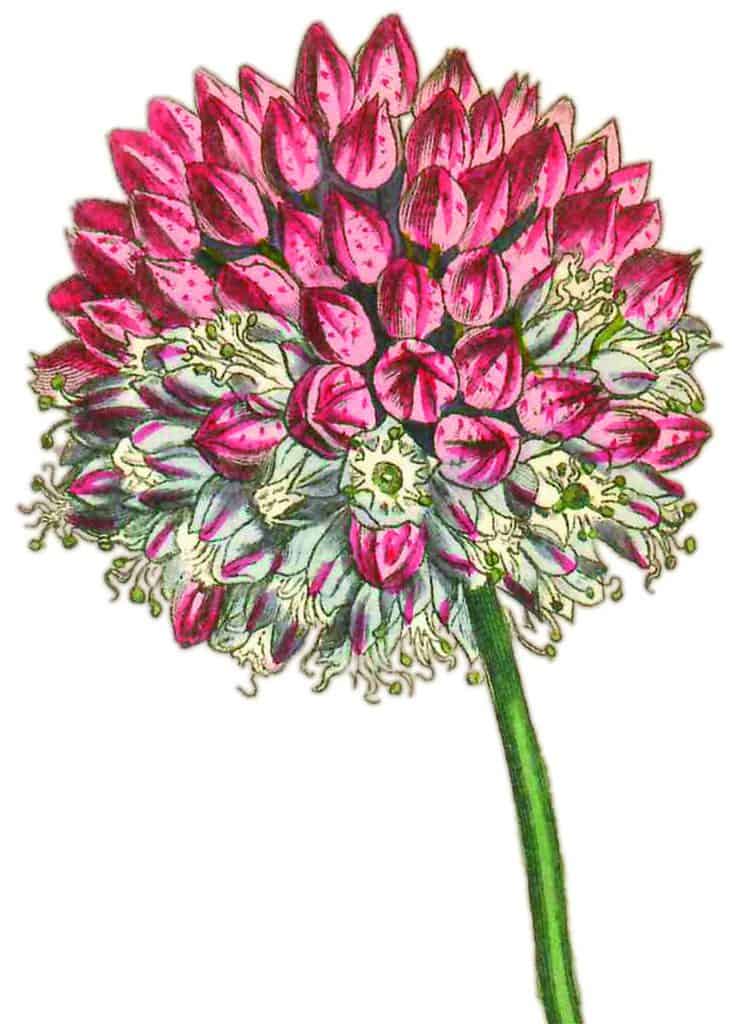
- “No crying over onions” is a simple tagline for Numbers 11. Describe a situation that has you complaining right now:
- Are you ready to turn from complaining as Jesus said (John 6:43)? Do you hear His Words as a suggestion or a command?
- Do you feel the strength within you to make this change or do you need to ask God for help?
So, my dear friends, just as you have always obeyed when I was with you, it is even more important that you obey now when I am away from you: keep working out your deliverance with fear and trembling, for God is the one working among you both the willing and the working for what pleases him. Do everything without kvetching or arguing … Philippians 2:12–14 CJB
- Which verse is a better description of your work with others, Numbers 11:13-14 or Colossians 3:17?
- How about garden work – do you feel a peaceful respite will working in the garden, away from “worldliness, pettiness, irritations (page 135)?” Write a few words or phrases that describe your state of mind while working in the garden:
- Do you realize this is the Presence of the Lord with you as you work?
- Does this grace come to you in all sorts of demanding work or only in gardening?
- If only in gardening, ask the Lord to show you that you are always in his Presence, and He is the one working in you (Philippians 2:13):
- When you begin to detect or realize His presence with you, thank Him:
They helped David against the band of raiders, for they were all mighty men of valor, and were captains in the army. For day by day men came to David to help him, until there was a great army like the army of God. 1 Chronicles 12:21–22 NASB
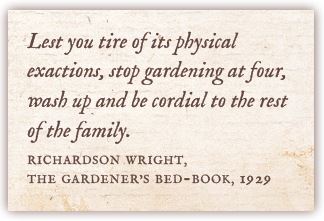
- Look back over your life and recount the biggest job or project that you have worked on:
- How did you overcome being overwhelmed? Did you learn to work “day by day” or is that still a hard method for you to adhere to?
- Write Psalm 61:8 in your own handwriting:
- For any pressing situations that are wearing you out, write a prayer to God to “help you hold on until harvest (Galatians 6:9)”:
We always thank God for all of you and continually mention you in our prayers. We remember before our God and Father your work produced by faith, your labor prompted by love, and your endurance inspired by hope in our Lord Jesus Christ. 1 Thessalonians 1:2–3 NIV
Faith in Jesus Christ gave them a special inspiration to work in undesirable circumstances with uncommon endurance and notable joy despite suffering (1 Thessalonians 1:6).
Shelley S. Cramm, My Father is the Gardener, page 138
- Have you ever worked in “undesirable circumstances with uncommon endurance and notable joy?”
- If not, does the possibility of prevailing in a difficult situation with joy and without worry appeal to you?
- Read back through the selected Scriptures of chapter 10 and write the one that you want to become a description of you:
In that day it shall be said to Jerusalem: “Do not fear; Zion, let not your hands be weak. The Lord your God in your midst, The Mighty One, will save; He will rejoice over you with gladness, He will quiet you with His love, He will rejoice over you with singing.” Zephaniah 3:16–17 NKJV
- Close your eyes and envision one of your best garden days. Write about the things in your vision that delight you:
- Do you realize this is an emotional state you share with God the Father? And that this pleasure and sweet, satisfying delight is how He feels about being with you?
- He can’t imagine life without you! Write a response – or a song:
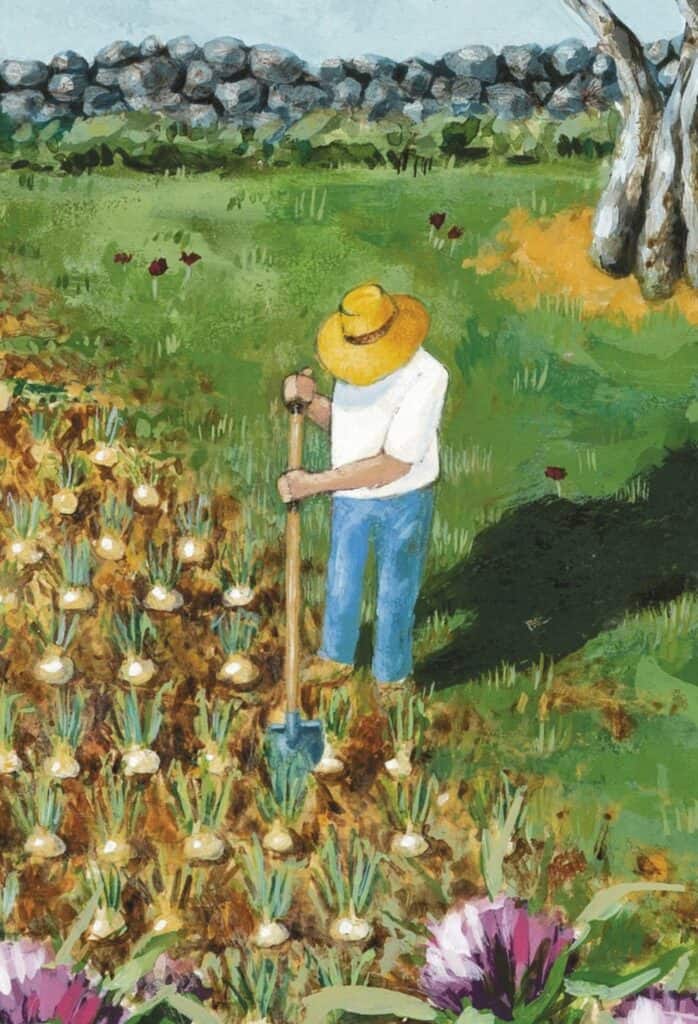
Closing Prayer
O God, my Father God, your love makes every work situation bearable! You Presence with me keeps anxiety and agitation at bay and helps me to focus in the right direction (Proverbs 4:25). I may have a simple task or a mountain of mayhem to work on; I may be called to work alone or with a difficult person or disjointed team. In every circumstance, You rejoice over me and your love will quiet my fears and frustrations. O Lord, thank you! Thank you for making a way in any wilderness-like work situation to bring me though it as your garden lover. Continue to grow my worship of You in my work. Amen.
Trust in the Lord and do good; Dwell in the land and cultivate faithfulness. Psalm 37:3 NASB
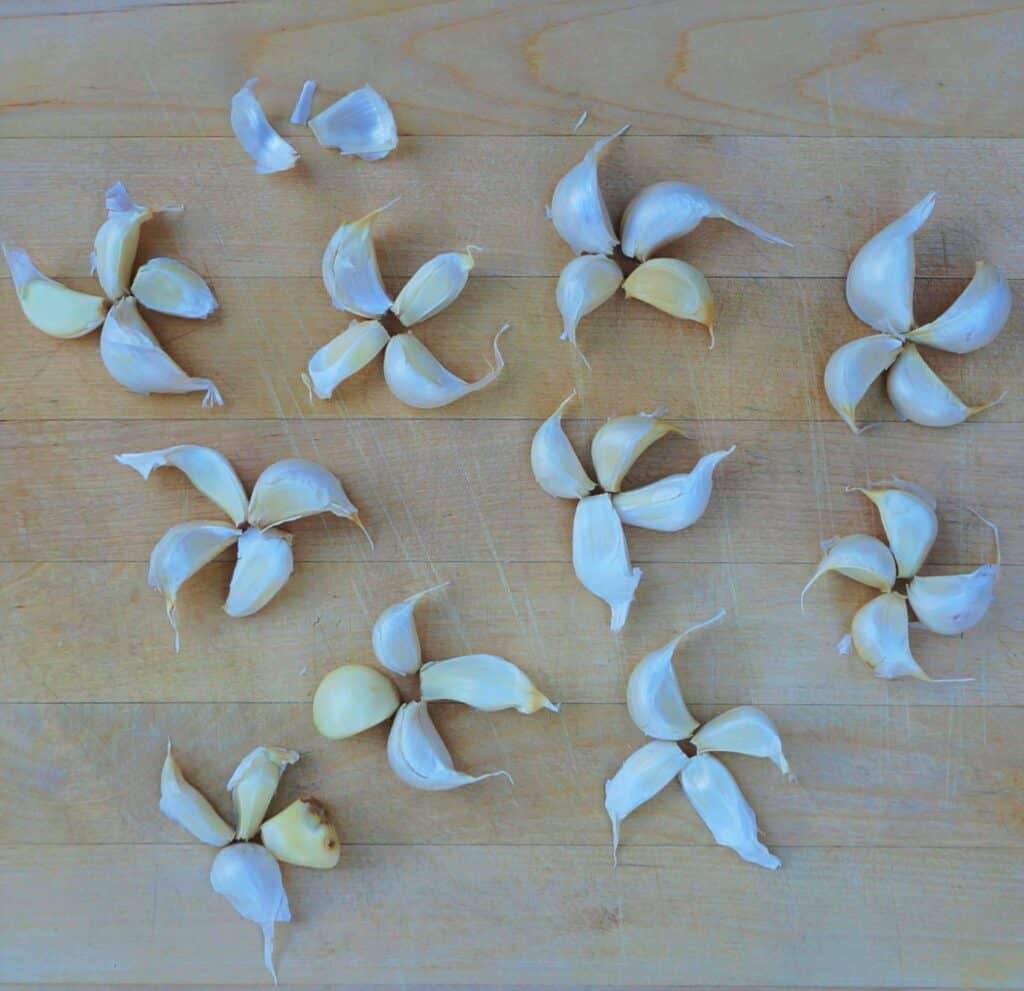

A Gardener’s Promise explores God’s forever-with-you devotion to us. More than a casual sentiment, God’s love is an enriching commitment to dig into everything together, a promise to hang your hat on. Part journal questions, part planting guide, this 7-part series has been created as a companion to My Father is the Gardener, Devotions in Botany and Gardening of the Bible, a way to work out God’s profound assurance in the backyard, arriving at Resurrection Day with a deeper grasp of what Christ has for us in revival life.
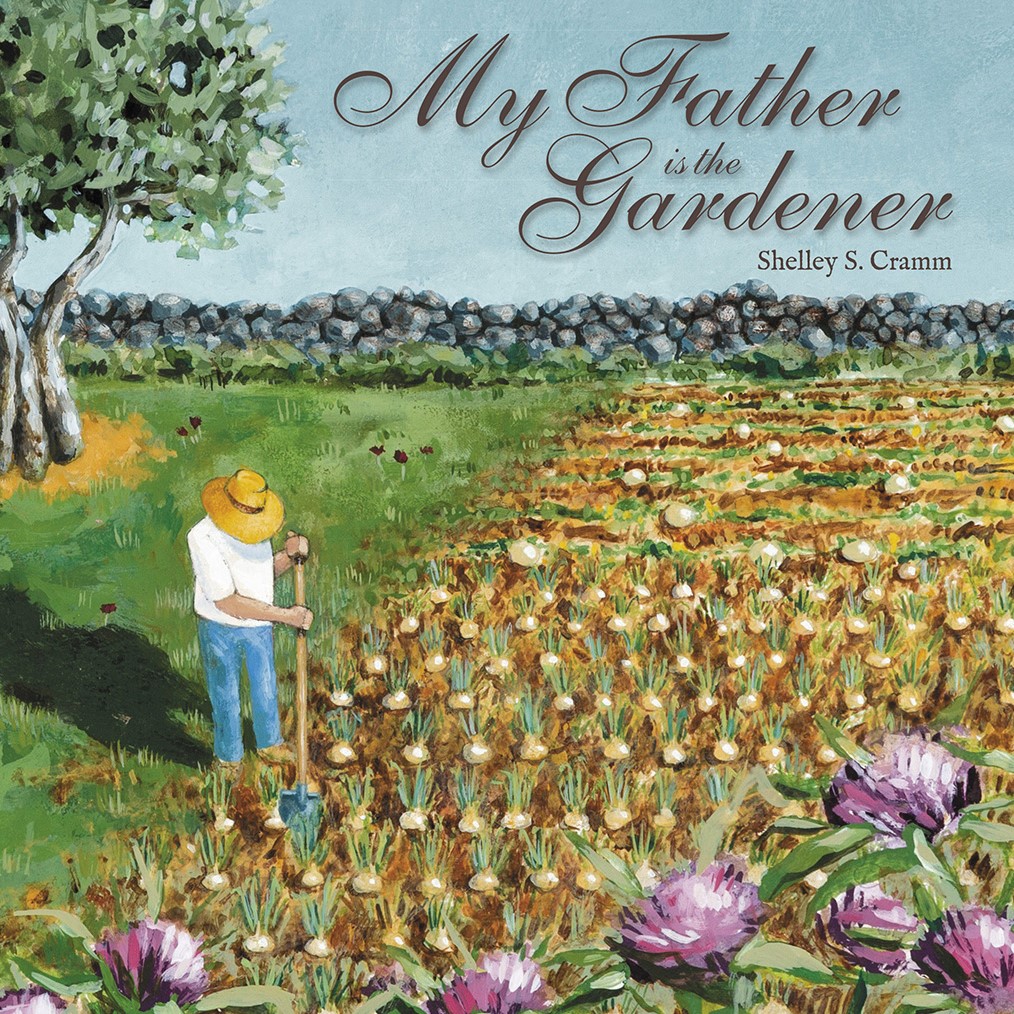
Enjoy Shelley’s latest book, a perfect study for Lent and the herald of spring. My Father is the Gardener digs into the plants, gardening, and landscapes of the Bible, unearthing inspiration in the routine ways of caring for plants and keeping a garden. Now available at BRIT Press, Powell’s Bookstore, and Amazon. Click to order: www.gardenindelight.com/books/my-father-is-the-gardener/
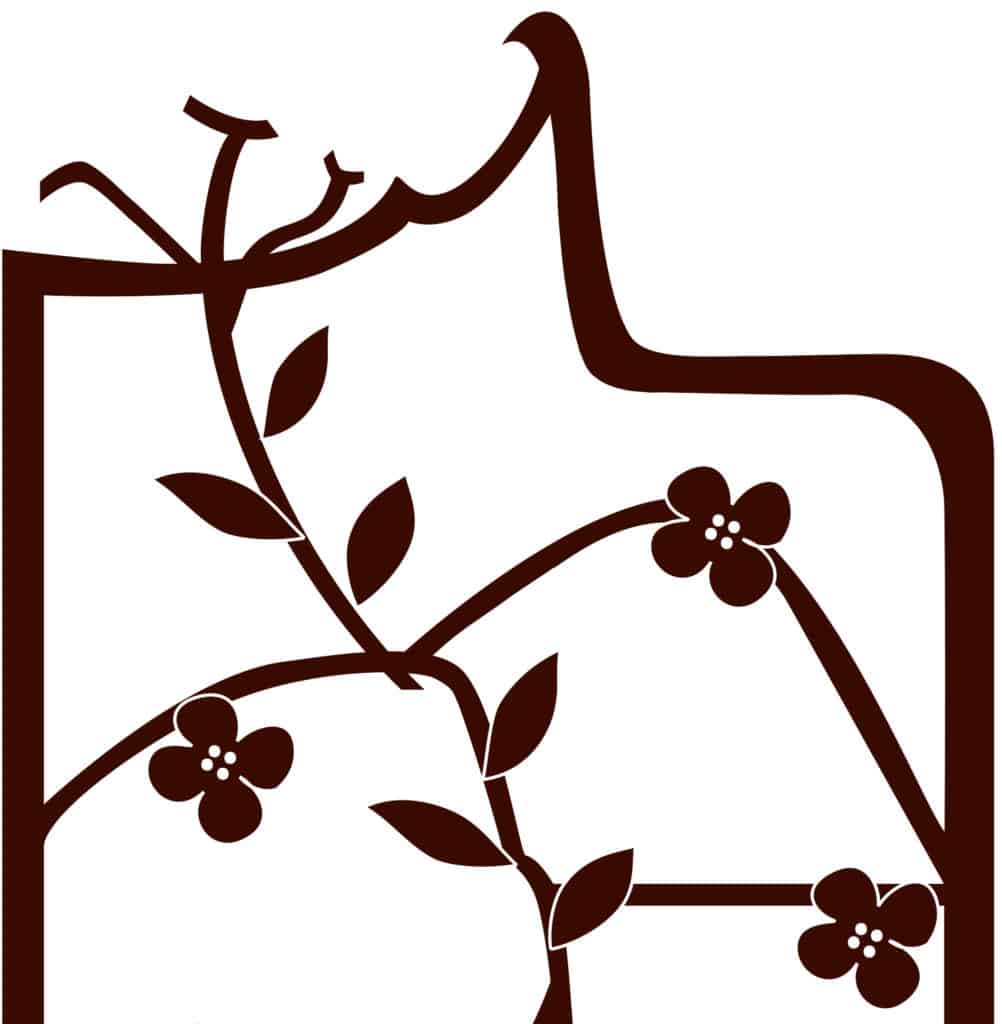
Visit the Plant Guide for more information on growing the plants of the Bible in your own garden. Find Cucumbers in Edible Shrubs & Vines and Leeks, Onions and Garlic in Edible Annuals
Photo Credits: ©2014 Shelley S. Cramm Cucumber trellis made from tree branches in late summer sun – notice the leeks growing among the vines on the lower right; Gardener’s hat, drawing by Layla Luna; ©2015 Shelley S. Cramm with summer’s “firstfruit” cucumber; ©2016 Shelley S. Cramm Leeks growing at the Atlanta History Center; ©2014 Shelley S. Cramm Onion bulb forming in early summer; ©2021 Shelley S. Cramm Garlic planted in the landscaping – a revolution called foodscaping; Drawing by Blackwell, Elizabeth. A Curious Herbal. Vol. 1 (London, John Nourse, 1751). Plate 4. Manuscripts and Archives Division, The New York Public Library. “Garden cucumber” The New York Public Library Digital Collections. 1751. www.digitalcollections.nypl.org/items/ec3f0ba0-fcdd-0136-e197-0c7e27bce827 ; Garden Hoe, drawing by Layla Luna; Leek flower from “Allium Ampeloprasum, Purple Cape Garlick.” Curtis’s Botanical Magazine or Flower-Garden Displayed. Vol. 38. (London: Sherwood, Neely, & Jones, 1813). Article 1560. Image from the Botanical Research Institute of Texas Library; Detail of book cover, My Father is the Gardener, painting by Layla Luna; ©2017 Shelley S. Cramm Garlic clove swirls ready for savory cooking. All drawings by Layla Luna created exclusively for My Father is the Gardener are copyrighted material. For copyright permission, please contact Shelley S. Cramm, shelleycramm@gardeninDelight.com
CJB notes Scripture quotations taken from the Complete Jewish Bible by David H. Stern. Copyright © 1998. All rights reserved. Used by permission of Messianic Jewish Publishers, 6120 Day Long Lane, Clarksville, MD 21029. www.messianicjewish.net.
HCSB denotes Scripture quotations taken from the Holman Christian Standard Bible®, Copyright © 1999, 2000, 2002, 2003, 2009 by Holman Bible Publishers. Used by permission. Holman Christian Standard Bible®, Holman CSB®, and HCSB® are federally registered trademarks of Holman Bible Publishers.
ISV denotes Scripture quotations from The Holy Bible: International Standard Version. Release 2.0, Build 2015.02.09. Copyright © 1995-2014 by ISV Foundation. ALL RIGHTS RESERVED INTERNATIONALLY. Used by permission of Davidson Press, LLC.
JUB denotes Scripture quotations taken from The Holy Scriptures Jubilee Bible 2000 (From the Scriptures of the Reformation) Copyright © 2013, 2020. Translated and Edited by Russell M. Stendal.
NASB denotes Scripture quotations taken from the NEW AMERICAN STANDARD BIBLE®, Copyright © 1960,1962,1963,1968,1971,1972,1973,1975,1977,1995 by The Lockman Foundation. Used by permission.
NET designates Scripture quoted by permission from the NET Bible® copyright ©1996, 2019 by Biblical Studies Press, L.L.C. http://netbible.com All rights reserved.
NKJV denotes Scripture taken from the New King James Version®. Copyright © 1982 by Thomas Nelson. Used by permission. All rights reserved.
NLT denotes Scripture quotations taken from the Holy Bible, New Living Translation, copyright © 1996, 2004, 2015 by Tyndale House Foundation. Used by permission of Tyndale House Publishers, Inc., Carol Stream, Illinois 60188. All rights reserved.
VOICE denotes Scripture quotations taken from The Voice™. Copyright © 2012 by Ecclesia Bible Society. Used by permission. All rights reserved.

